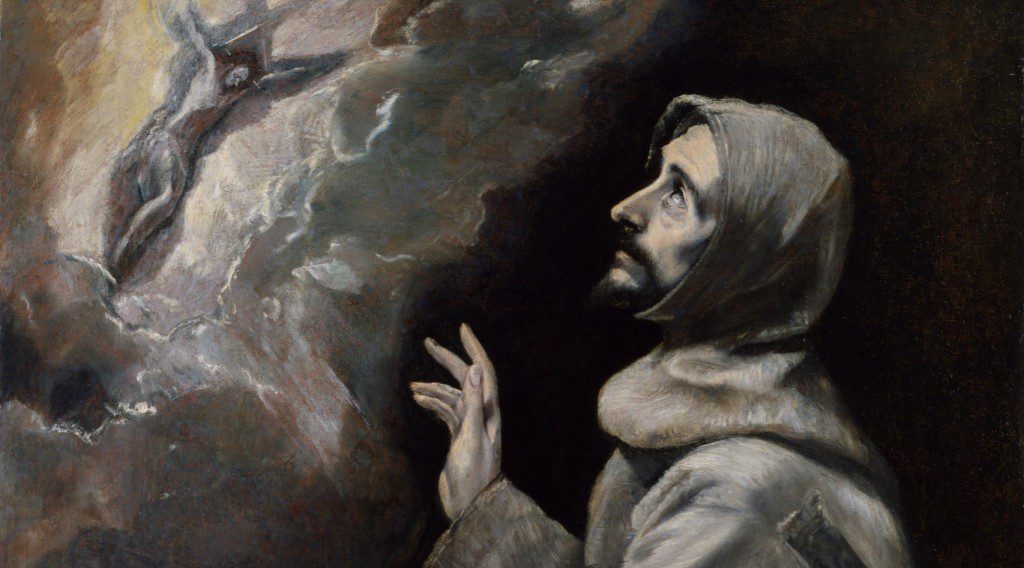(Spoiler Alert: The Eucharist is God in the form of bread and wine.)
 To hear your average Catholics – alright, let’s be honest, to hear some Catholics who actually care about the faith – speak on the Eucharist, I would sympathize with the modern eavesdropper who would leave the conversation thinking that he had overhead a couple of junkies praising a life-consuming drug. Our phrases our peppered with a fiendish, ravenous hunger, from Flannery’s “it is the center of existence for me; all the rest of life is expendable” to any beautiful Catholic girl’s need for Communion. There is a certain element of desperation that is associated with the Eucharist; and sure, we say we need Mary, that we love Christ, but never with so much physical, gut-wrenching feeling as when we say we need Holy Communion. And it makes sense, in the end, that such a physical gift would have such a physical reaction. Have you noticed that? If not, read St. Thomas Aquinas, or any of the saints, really. They might be dry as bones on the value of chastity, banal and boring on the Creation of the world, but I guarantee it, the subject of the Eucharist will wring the poetry out of the driest of prose. Probably because the Eucharist is the only true Poem. But that’s another post.
To hear your average Catholics – alright, let’s be honest, to hear some Catholics who actually care about the faith – speak on the Eucharist, I would sympathize with the modern eavesdropper who would leave the conversation thinking that he had overhead a couple of junkies praising a life-consuming drug. Our phrases our peppered with a fiendish, ravenous hunger, from Flannery’s “it is the center of existence for me; all the rest of life is expendable” to any beautiful Catholic girl’s need for Communion. There is a certain element of desperation that is associated with the Eucharist; and sure, we say we need Mary, that we love Christ, but never with so much physical, gut-wrenching feeling as when we say we need Holy Communion. And it makes sense, in the end, that such a physical gift would have such a physical reaction. Have you noticed that? If not, read St. Thomas Aquinas, or any of the saints, really. They might be dry as bones on the value of chastity, banal and boring on the Creation of the world, but I guarantee it, the subject of the Eucharist will wring the poetry out of the driest of prose. Probably because the Eucharist is the only true Poem. But that’s another post.
So we are addicts. There’s a truth to St. Augustine’s classic line that we forget, “You breathed your fragrance on me; I drew in breath and now I pant for you. I have tasted you, now I hunger and thirst for more. You touched me, and I burned for your peace.” First, it’s no mere want for God in general; St. Augustine was no atheist. This line, from his Confessions, came from his conversion to Catholicism, and thus, the experience described is essentially Eucharistic. Secondly, the phrase isn’t what I would call happy, nor about some calm and peace found in God; if anything it’s intensely needy, agitated, something more along the lines of a heroin addict than a Saint. The Eucharist doesn’t calm Augustine, it burns him. How important it is to realize, in an age where all that matters is that we are happy, feeling fine, that God wants to set a desire for Him in our hearts that burns, that hurts?
Have you ever been in the state of mortal sin for a prolonged amount of time, and had to avoid the Eucharist? It sucks. There is physical longing, unfulfilled desire, dark agitation that seems to have no cause; nothing is the same. I wouldn’t recommend trying it, obviously, but take this sinner’s word; life without the Eucharist isn’t life at all. But all this leads to an obvious complaint: What about the large portion of the world that doesn’t receive the Body of Christ? It’s not as if they walk around with a ravenous need, an unfulfilled void. Well, perhaps some do, and I imagine we’ve all met a few souls we’ve wanted to grab, shake and scream in their faces, “I know what you need! I have the answer! I’ve found God, I have, come follow!” but for the large part, people aren’t walking corpses. That’s not to say the world is ecstatic all the time, but surely it is a point against the reality of the Eucharist that we have billions of people who “do not eat his body and blood” yet seem to have life within them just fine.
But as any druggie will tell you, “you just ain’t tried it yet.” A man who has created a family would not go back to the life he had before, though he might have said he was fine when he was single. So it is with the Eucharist. And anyways, that’s not the point. The point is that the world’s ‘fine’ is no longer even enough. Humanity might indeed be doing fine without the Eucharist, I am not one to doubt them. But ‘fine’ does not satisfy me now, and I truly believe it does not satisfy a single human being. If it did, why the superheroes? Why the drugs, the alcohol, the sex? Why the books, the video games, the music, the sky-diving or the movies? If all we want is to be fine, why do we spend such a large part of our lives seeking to be so much more?
The beauty of Augustine lies in that truth, that man is not meant for mediocrity. That’s why the phrase “I’m fine” is the world’s most common lie; we don’t know what it means, it doesn’t fit, it is an inherently unsatisfying answer to the question “How are you?” To those who consume God, and to a world redeemed by Christ, the answer to anyone’s “I’m fine” should be, “I’m sorry! For you weren’t made for shallow contentment, you were made to be hungry, panting, searching, a lover and a priest and a prophet!” Augustine’s whole idea can be restated for the modern world as, “I was content breathing in oxygen, but you set my lungs on fire with your love, and now I can barely stand breathing anything else! I was doing fine living, making money, eating and drinking, having sex and watching TV, but you rudely made “being fine” ridiculously banal, and now I want this very agitation, this desire, this hunger that pushes me towards you.” So yes, we’re Eucharistic addicts, not only because the Eucharist elevates us to new spiritual heights, but also because it makes life without the Eucharist unthinkable. But isn’t that just typical of the church Christ has left us? So good it makes good seem boring.











